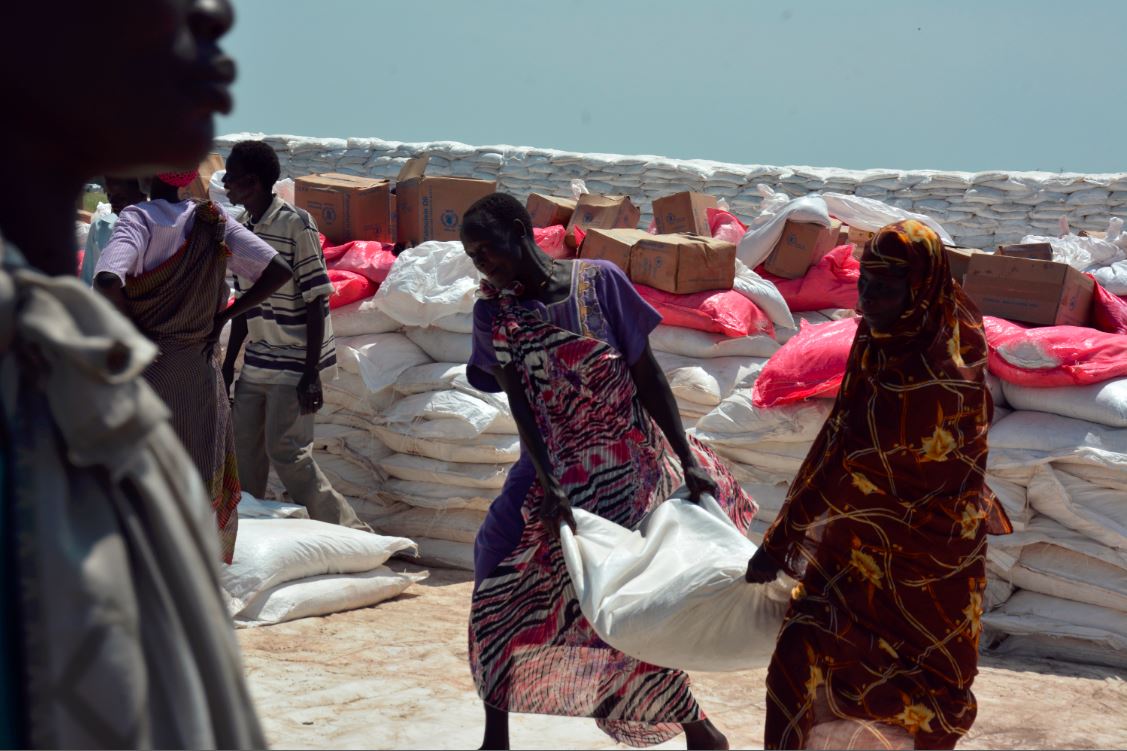World Vision to Deliver Australian Famine Aid in South Sudan
Tuesday, March 21, 2017

World Vision has been awarded a key Australian Government grant to deliver humanitarian aid in famine-stricken areas of South Sudan – a country reeling from conflict and hunger, with 100,000 people already facing famine, one million people on the brink of famine, one million children estimated to be acutely malnourished, and 270,000 children suffering from severe acute malnutrition.
The grant is part of a $20 million grant announced on March 1 to help more than 13 million people in South Sudan and Somalia suffering from critical food shortages.
World Vision is one of the lead agencies in South Sudan in ensuring effective United Nations/NGO coordination in emergency responses and will work in a consortium to deliver aid in the areas of nutrition; food security; water, sanitation and hygiene; and protection for women and children.
Welcoming the grant, World Vision Australia’s head of Humanitarian and Emergency Affairs, Daryl Crowden, said that while conflict was the main cause of food insecurity in South Sudan, “whether it’s caused by conflict and politics or not is irrelevant: this is about millions of people who, through no fault of their own, are starving to death”.
“With more than one million people on the brink of famine across the country and many families having exhausted every means they have to survive, the people of South Sudan are in desperate need. This is no longer a matter of children being hungry – this is life and death,” he said.
In South Sudan, 7.5 million people – 60 per cent of the country’s population – are in need of humanitarian aid, with 4.9 million severely food insecure, expected to rise to 5.5 million by July.
A localised famine was declared in the Greater Upper Nile region previously known as Unity State in February, in Leer and Mayendit counties, while in the neighbouring former state of Northern Bahr el Ghazal more than half the population is in crisis and classified as on the brink of famine.
Mr Crowden said urgent assistance was needed not just in South Sudan, but throughout East Africa, with more than 22 million people in desperate need of food and 9.8 million children directly affected.
United Nations humanitarian chief Stephen O'Brien has called it the largest humanitarian crisis since the UN was founded in 1945, telling the UN Security Council recently that more than 20 million people across Yemen, South Sudan, Somalia and northeast Nigeria “face starvation and famine”.
“World Vision’s goal is to help children survive and thrive, but as communities fracture in a desperate search for food and water, millions of children are being placed in danger, exposed to harm and violence,” Mr Crowden said. “We desperately need help to halt the seemingly inevitable spread of a regional famine.”
The Australian Government announced NGO grants totalling $5 million – to World Vision and Oxfam. The DFAT panel assessed proposals based on their relevance and effectiveness in famine response, including focus in areas of greatest need; proven levels of access, partnerships and coordination on the ground; and responsiveness to issues of inclusion, including gender and disability.
More than 3.4 million people in South Sudan have been displaced since the present conflict began in December 2013, including 1.9 million internally displaced and more than 1.5 million who have fled to neighbouring countries as refugees. Despite immense challenges, aid agencies have delivered humanitarian aid to nearly 4.7 million people over the past year, including nearly 3.6 million who were reached with food assistance or emergency livelihoods support; more than 195,000 severely malnourished children who were admitted for treatment; more than 2 million people who were provided access to clean water; more than one million who were reached with emergency shelter and vital non-food items; and nearly 200,000 children who were administered with the Penta vaccine against five major diseases.
To learn more about World Vision Australia’s East Africa Emergency Appeal:
https://www.worldvision.com.au/global-issues/world-emergencies/east-africa
To learn more about the Australian Government’s response:
http://dfat.gov.au/aid/topics/investment-priorities/building-resilience/humanitarian-preparedness-and-response/Pages/humanitarian-support-for-somalia-and-south-sudan.aspx
For further information, or interviews, contact Stuart Rintoul: 0407 241 492
Photograph: Food distribution, Upper Nile, South Sudan (World Vision)
Media Releases,
Famine,
Foreign Aid,
South Sudan
Back to all Results